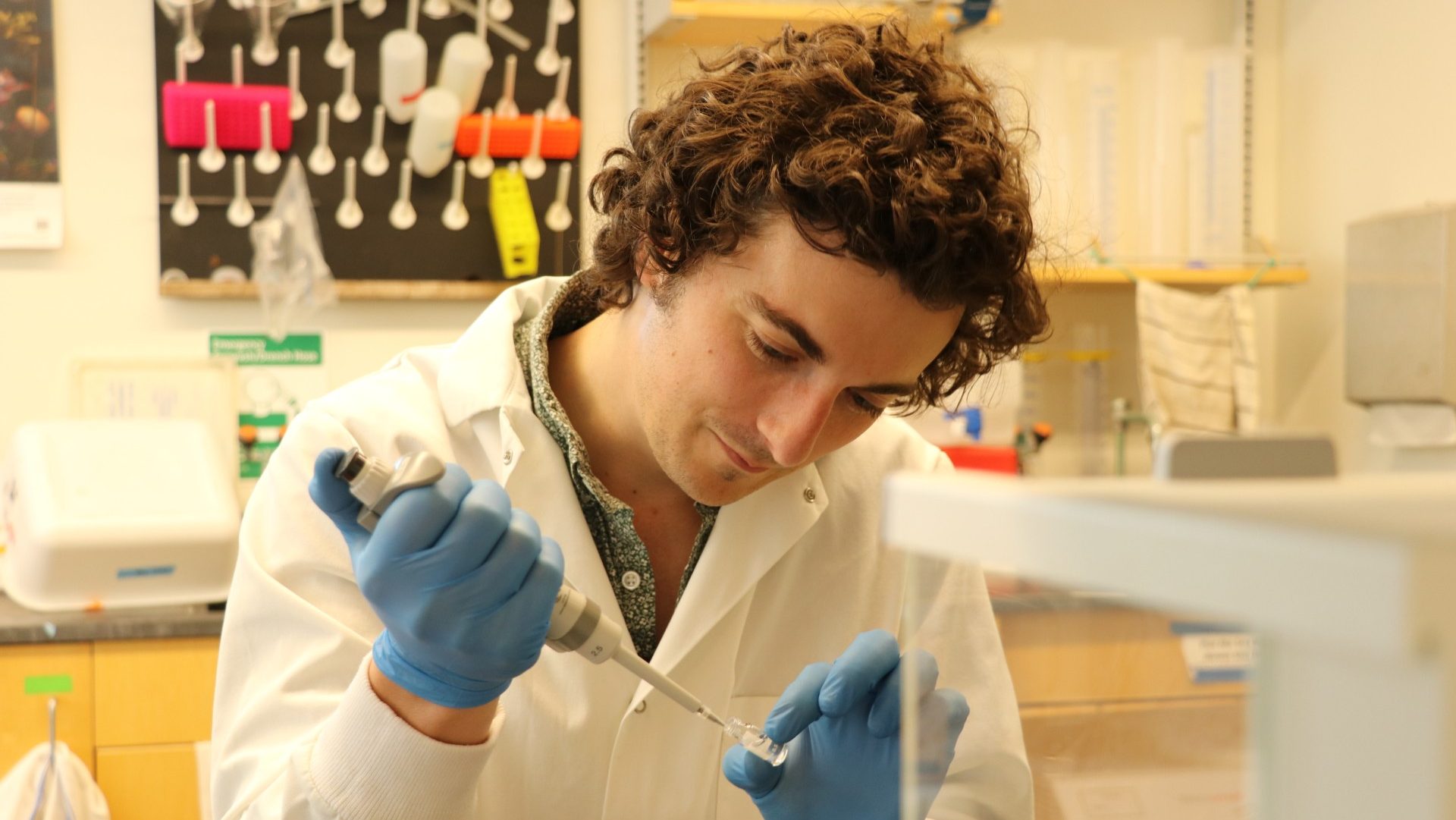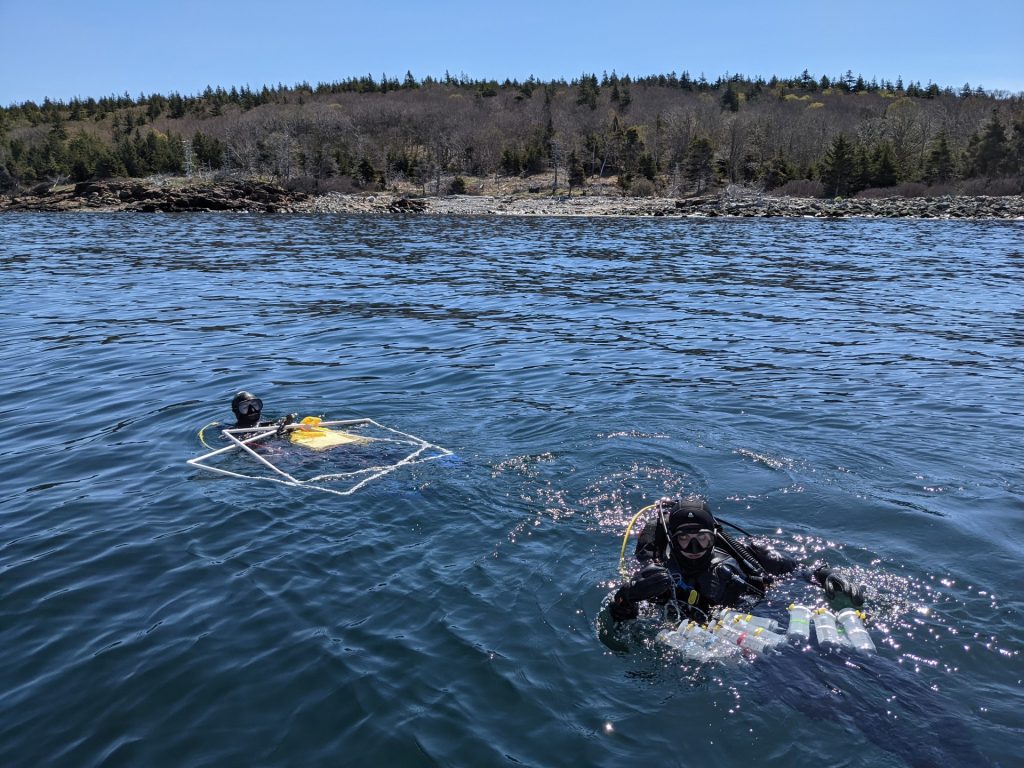
‘Chemical warfare’ of turf algae threatens kelp forests, study finds
While kelp forests are increasingly dwindling along portions of the Maine coast, those that remain still provide valuable food and habitat for lobster, fish and other species. Yet rapidly proliferating turf algae, which resemble thick mats along the seafloor, are chemically sabotaging kelp forests’ recovery from decades of decline, threatening biodiversity and nutrient systems in the Gulf of Maine as a result.
A new study published in Science, led by Bigelow Laboratory for Ocean Sciences and co-authored by University of Maine researchers, revealed that turf algae release potent compounds that kill young kelp, setting off a feedback loop that reinforces kelp forest degradation. This is the first study to identify “chemical warfare” — known scientifically as allelopathy — is inhibiting kelp forest recovery in temperate kelp forests. These findings add a crucial piece to understanding ocean ecosystem resilience.
“That’s why this study is so powerful,” said Bigelow Laboratory senior research scientist Doug Rasher, the study’s senior author. “It moves logically from describing a pattern in nature — the lack of recovery of kelp forests — to revealing that the chemical landscape of kelp forests and turf reefs are fundamentally different, to pinpointing that turf algae and the chemicals they exude prevent kelp recruitment.”

UMaine Ph.D. candidate Shane Farrell, a member of Rasher’s research group and Damian C. Brady’s laboratory at UMaine, led the study. In addition to Rasher and Brady, UMaine professor of marine sciences, Farrell collaborated on the research with Dara Yiu, UMaine Ph.D. candidate and another member of Rasher’s group; and other researchers from the University of California Riverside, University of Tübingen, Perry Institute for Marine Science and Harvard University. Their work involved extensive field surveys, advanced chemical analysis and novel lab experiments.
“The implications of this study are far reaching. It influences how we think about the impact of marine heatwaves on kelp forests, and the results indicate that restoring these ecosystems in the future will require careful planning,” Brady said.
Read the full story on Bigelow Laboratory’s website.
This study was supported by the Maine-eDNA program, funded through the National Science Foundation Established Program to Stimulate Cooperative Research (EPSCoR); the Louise H. David S. Ingalls Foundation, the PADI Foundation, the Essex Avenue Foundation and the German Research Foundation.
Contact: Marcus Wolf, 207.581.3721; marcus.wolf@maine.edu
